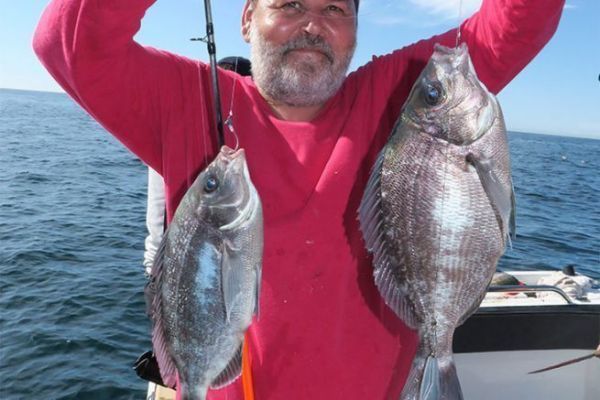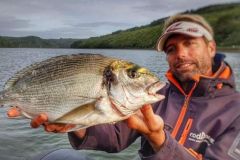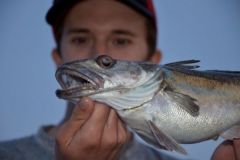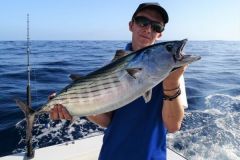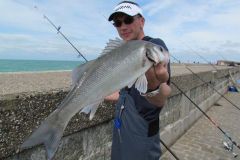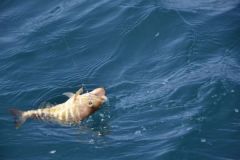Scientific name
Spondyliosoma cantharus (Linnaeus, 1758)
Morphology
The body of the sea bream is high with a small head. The upper jaw is protractile and the small mouth opens easily. Its coloration is metallic blue-gray on the back and lightens on the belly, where 5 to 6 wide brown transverse stripes and 15 to 18 blue longitudinal lines drawn by the scales may appear. The end of the tail is clear.
Fishing spots
The young gilthead sea bream come closer to the coast in summer. This sparid enjoys estuaries, channels, Posidonia meadows, sandy corridors and rocky dikes. It can be found in the North Sea, the Channel, the Atlantic and the Mediterranean.
Fishing techniques
The fishing of sea bream is very popular in France. Bites of bream are to be hooked quickly, because these fish shred the bait in one bite thanks to their strong and sharp teeth. For this, a rod of 2 to 3 m with sensitive tip is recommended. A straddle allows you to hold the dorados under the boat. Bream can be caught with a feather or soft lure, but this is rare. They can also be fished drifting, on a 2 or 3 stacks rig.
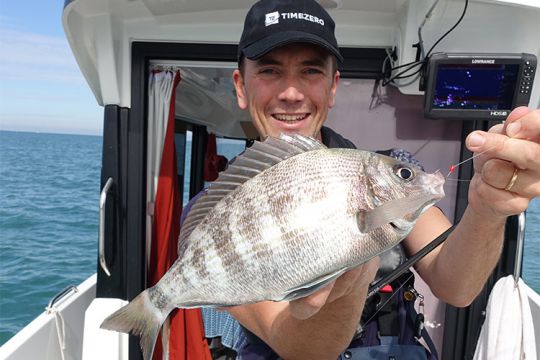
Reproduction
During the reproduction from the size of 25 cm, they form their nest in the sand by digging large holes. The males watch the eggs.
Size and weight
With an average size of 20 to 40 cm, sea breams can reach 60 cm for 3 kg. The French record is 2.79 kg (La Baule, 04/09/1994).
Good to know
The griset is one of the most sought after fish in the Atlantic. Its flesh is delicious. The bites are to be hooked quickly, because it shreds the bait in one bite.

 /
/ 